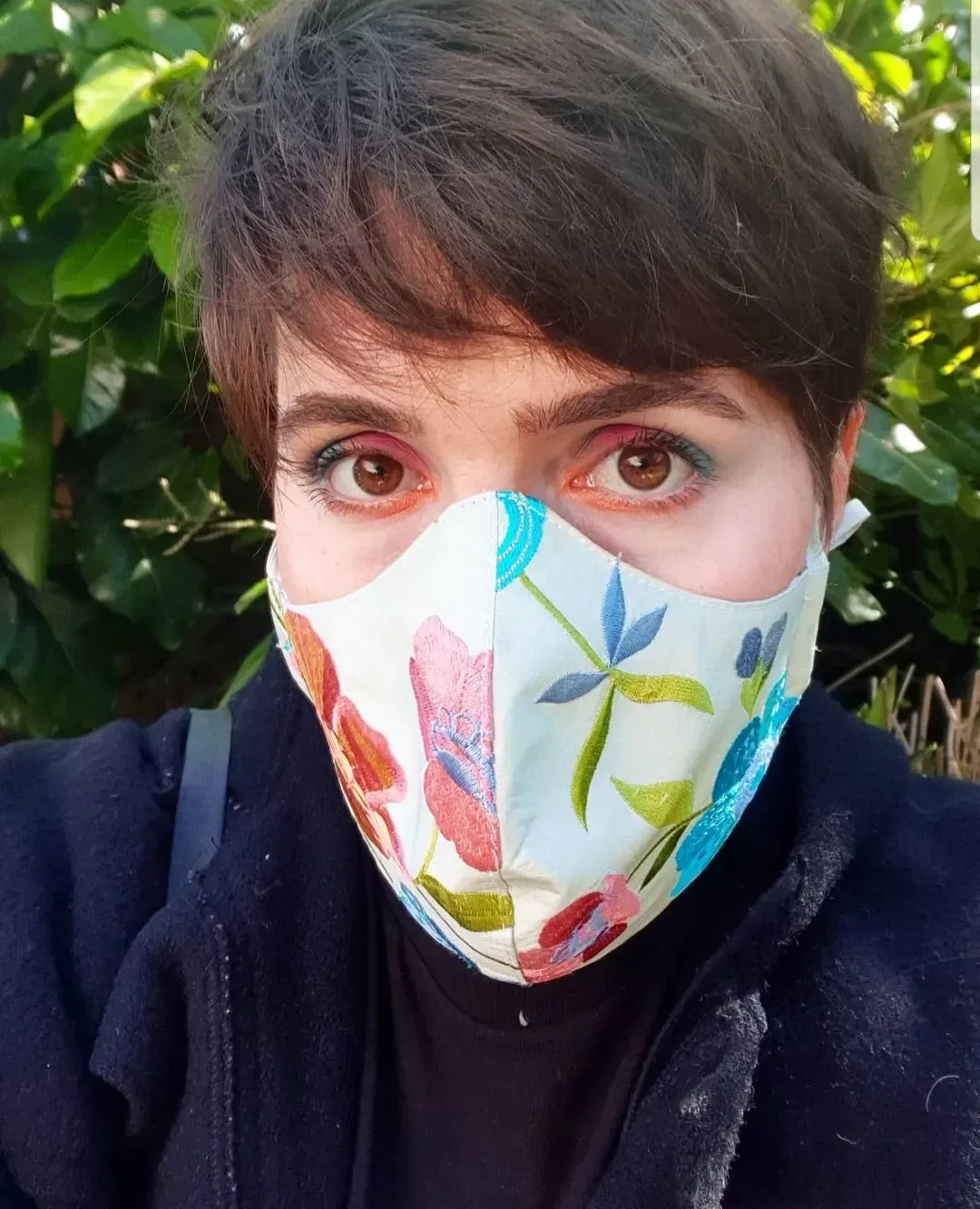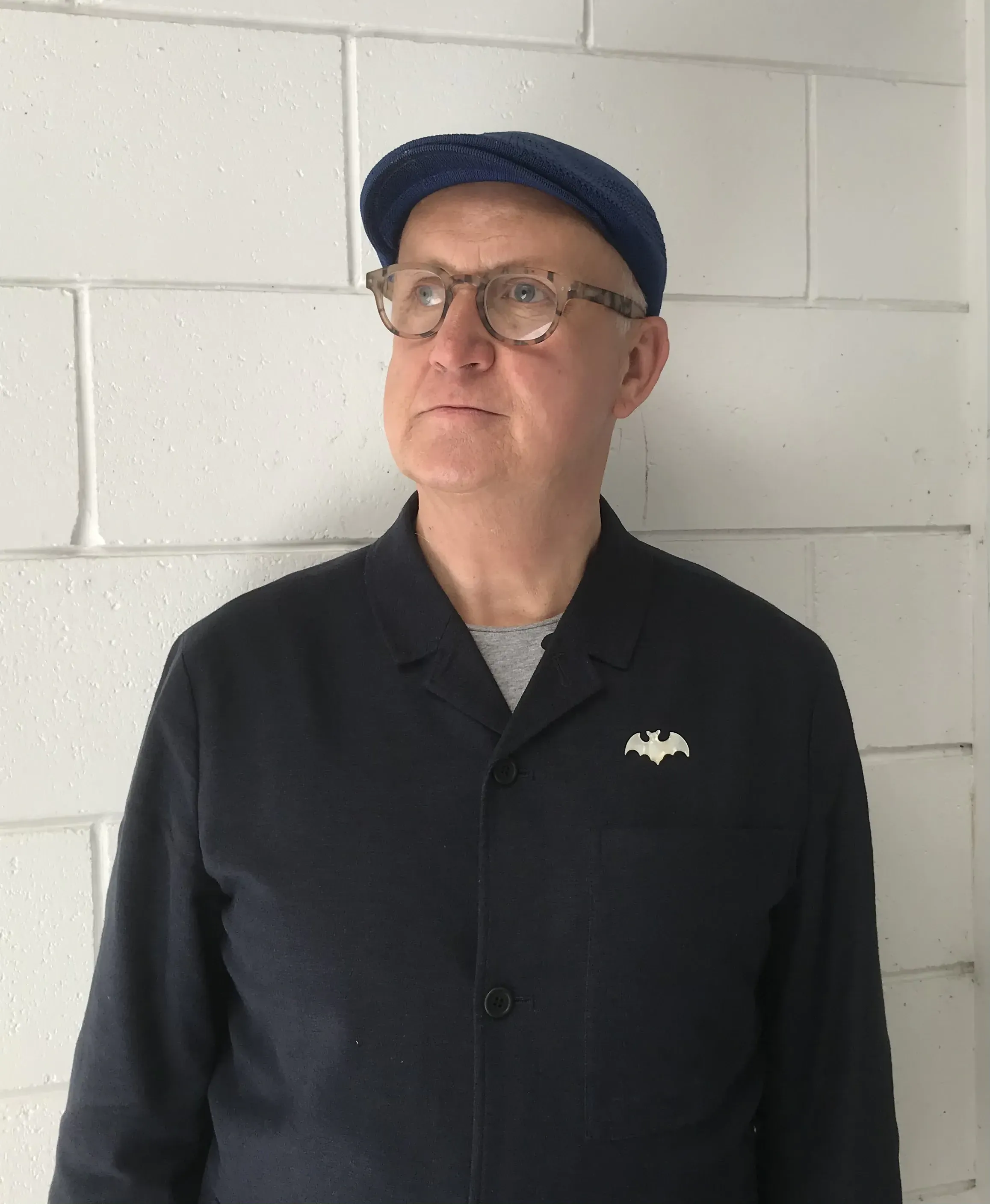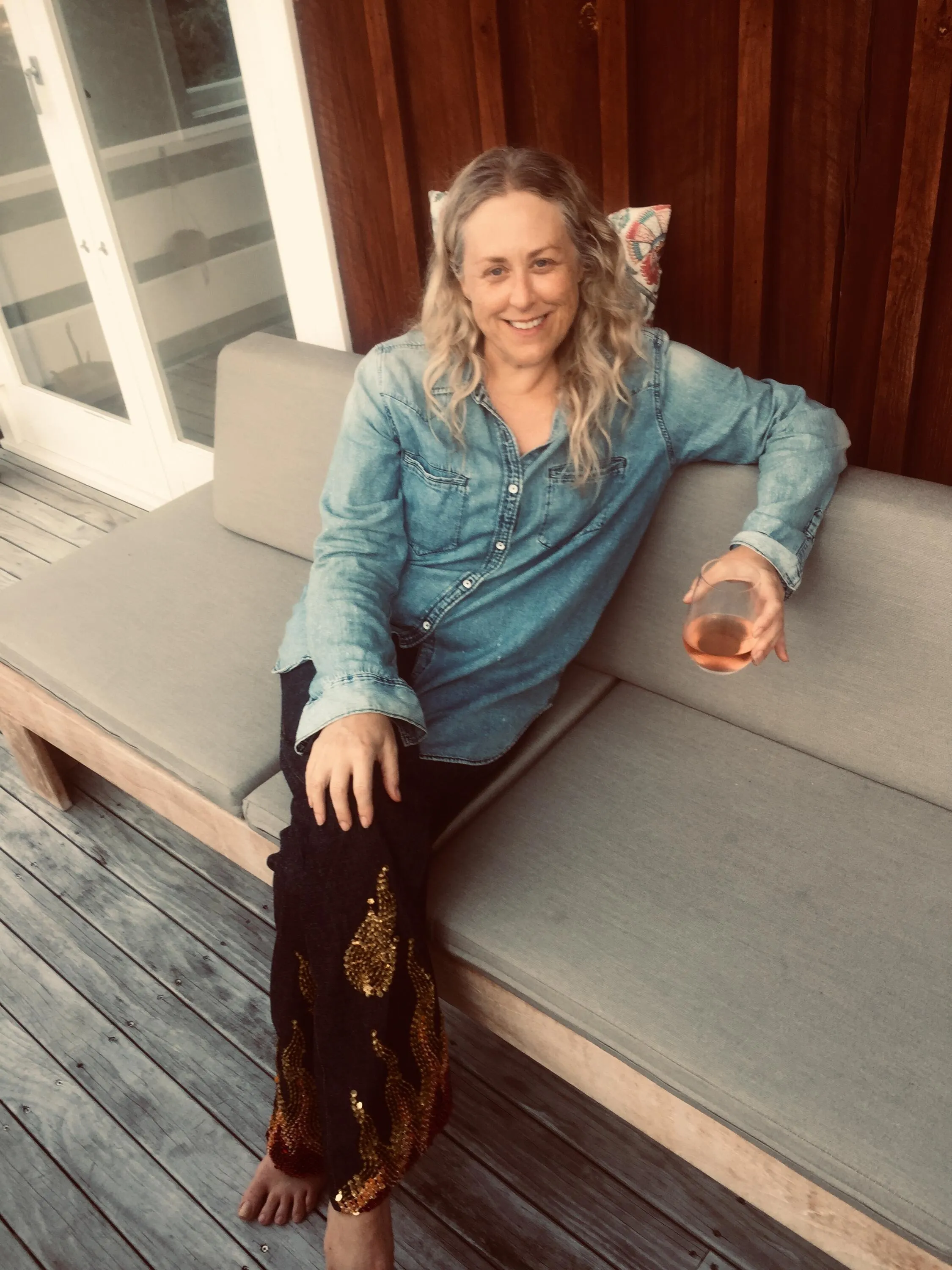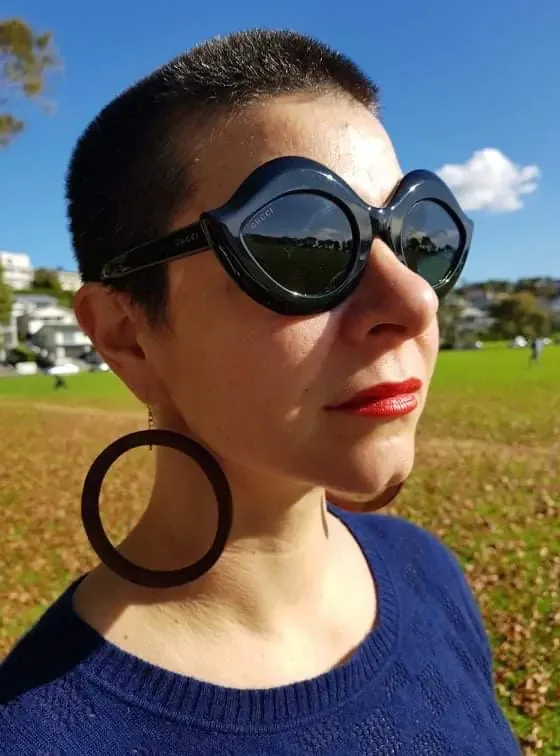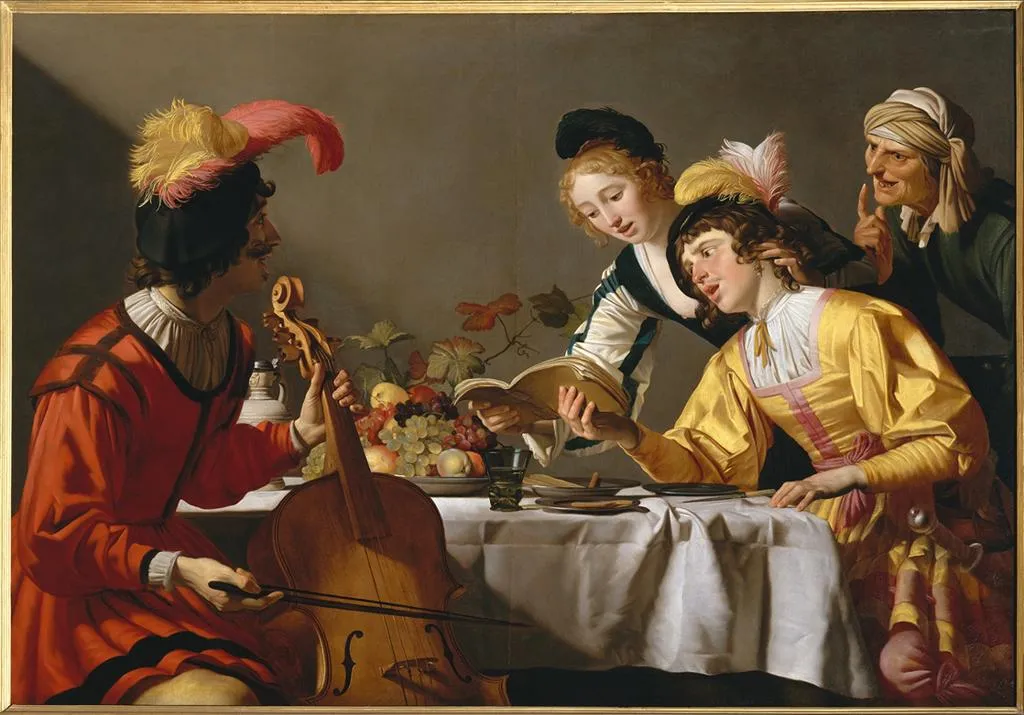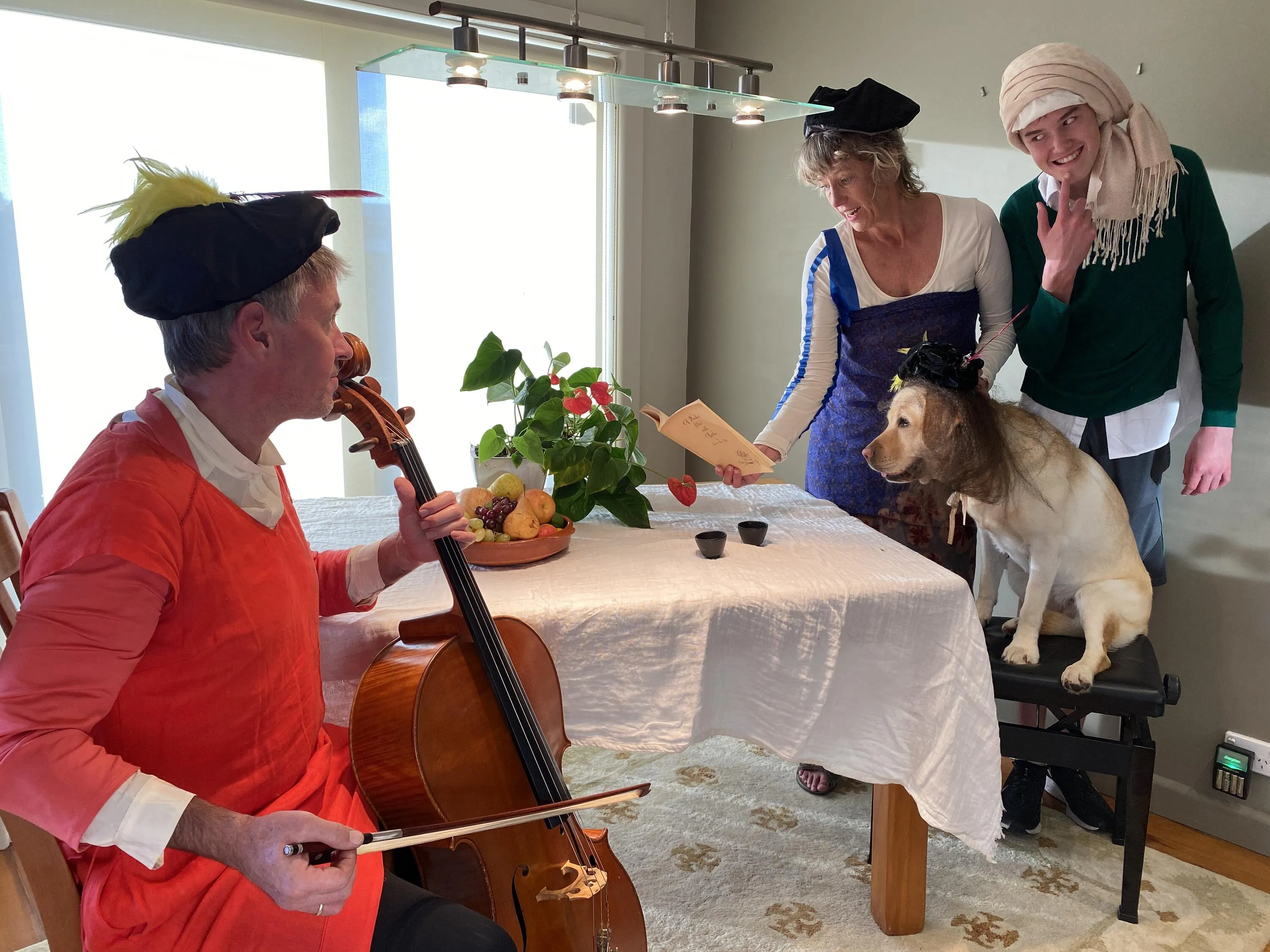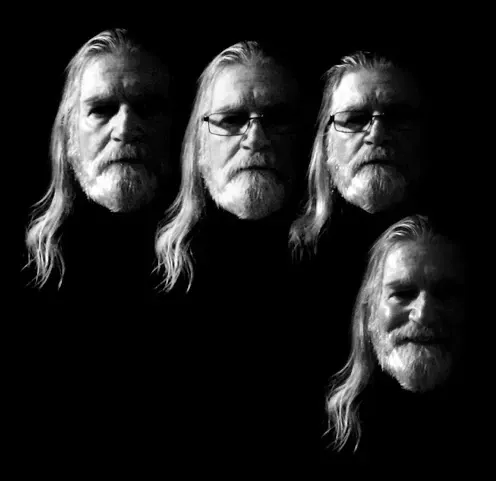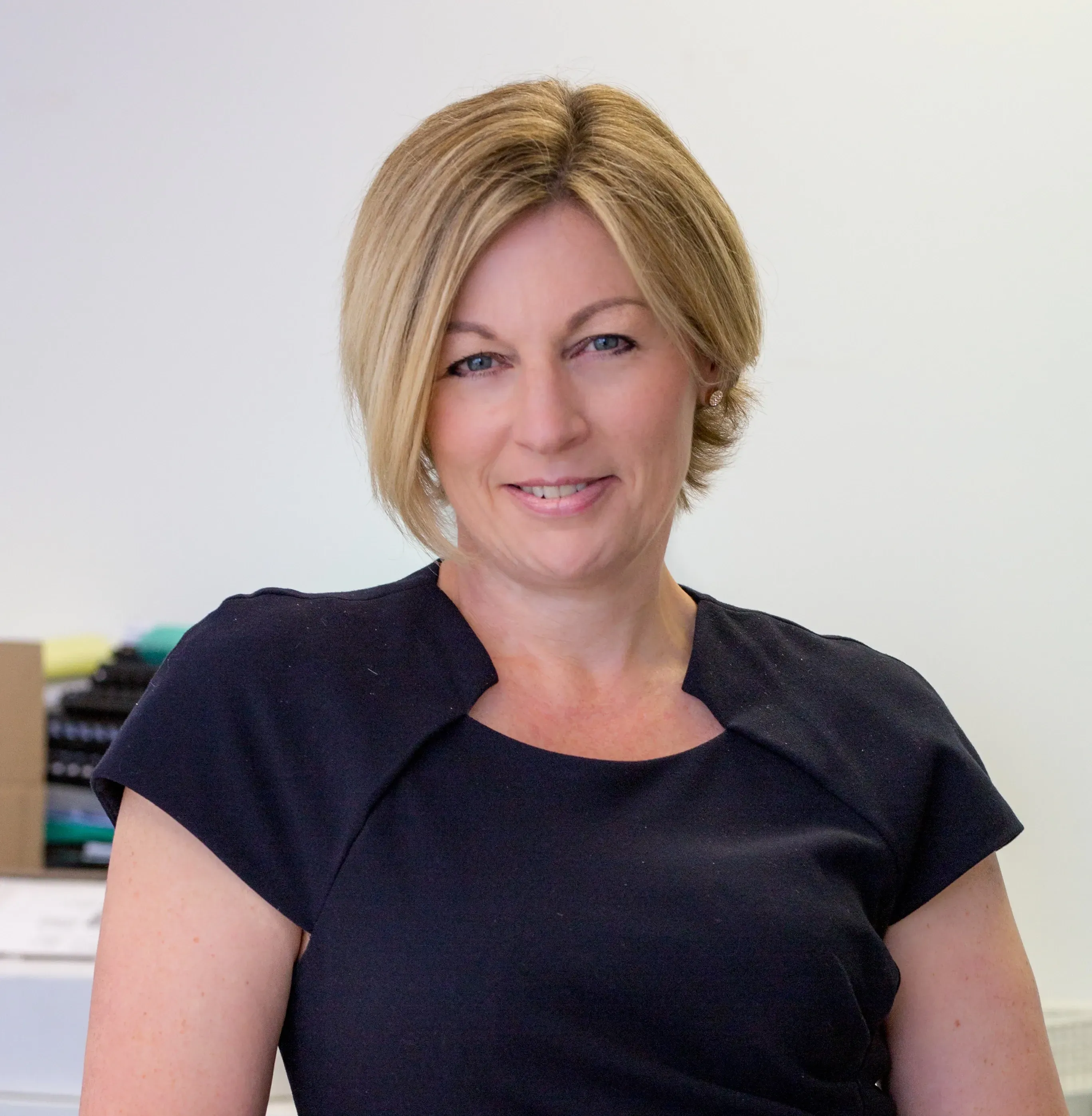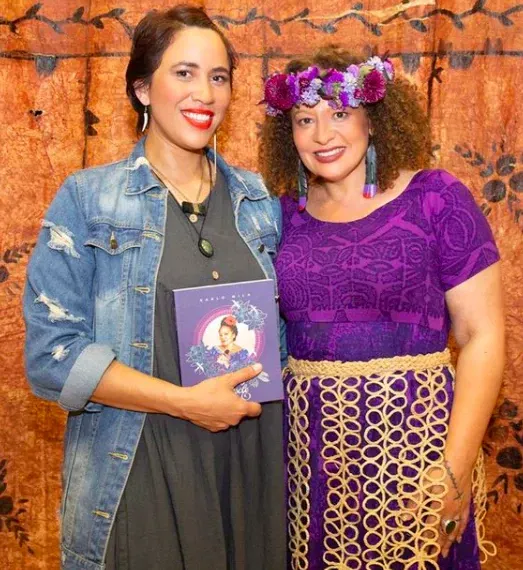Arts Voices: What Has 2020 Taught Us?
Written by
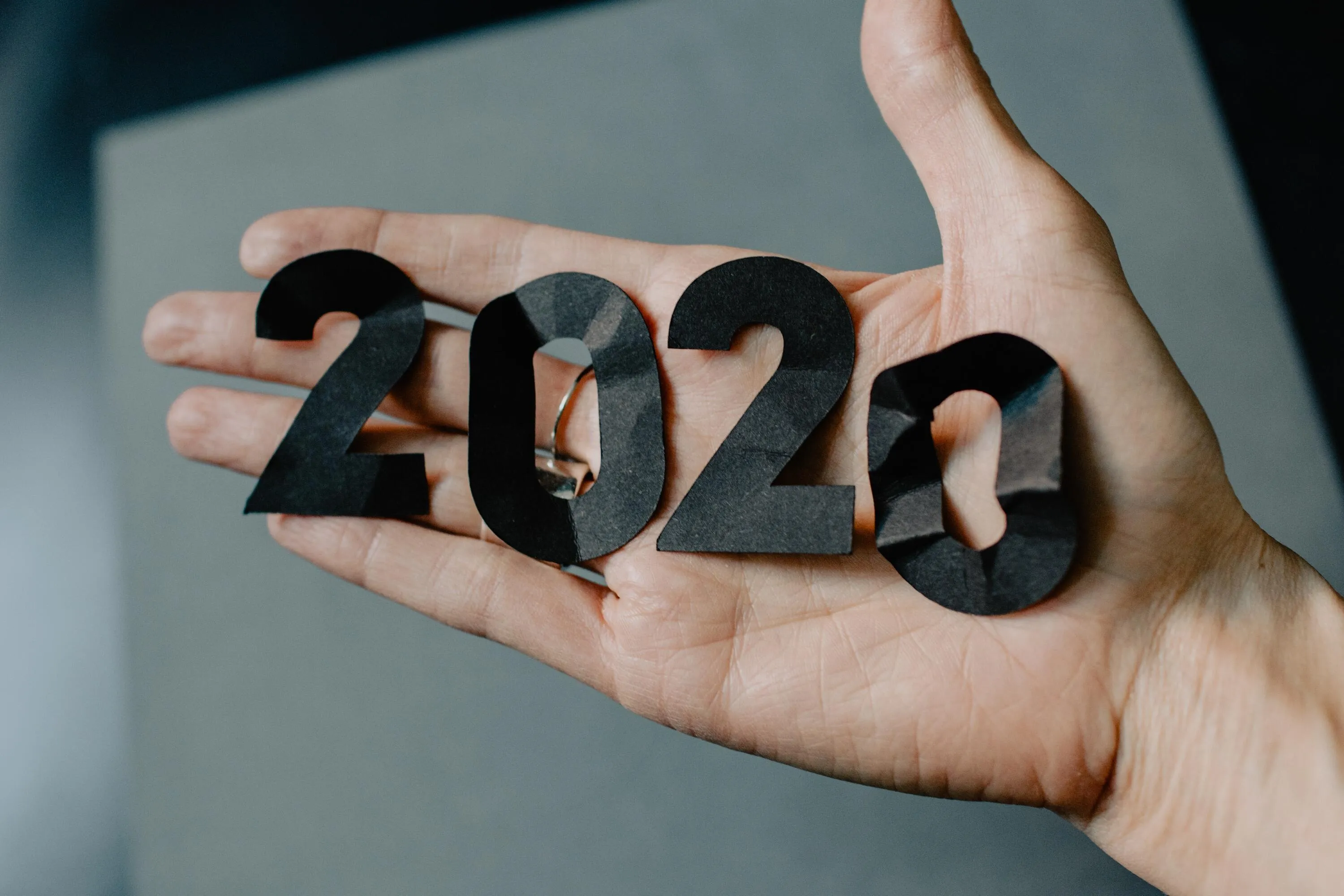
In a world full of spoilers and predictions, no one saw 2020 coming.
Anyone who proclaims “yep, called it” about the last 12 months we’ve experienced at this time last year is lying through their teeth. Sure, things like the election, rising house prices or a major Kiwi Oscar win could have been crystal ball gazed but not that great big global pandemic that brought virtually an entire planet to a standstill and made lockdown an everyday term.
As we get closer to consigning this unforgettable year to the history books, The Big Idea is again turning to our creative community to get a gauge on what matters.
Arts Voices is a series where we canvas creatives of Aotearoa to get their thoughts on the issues that the sector faces.
We posed the following question - What have we learned in 2020 about the creative community?
Here are some of their responses.
Tim Walker - Arts strategist/consultant, The Big Idea Chairman
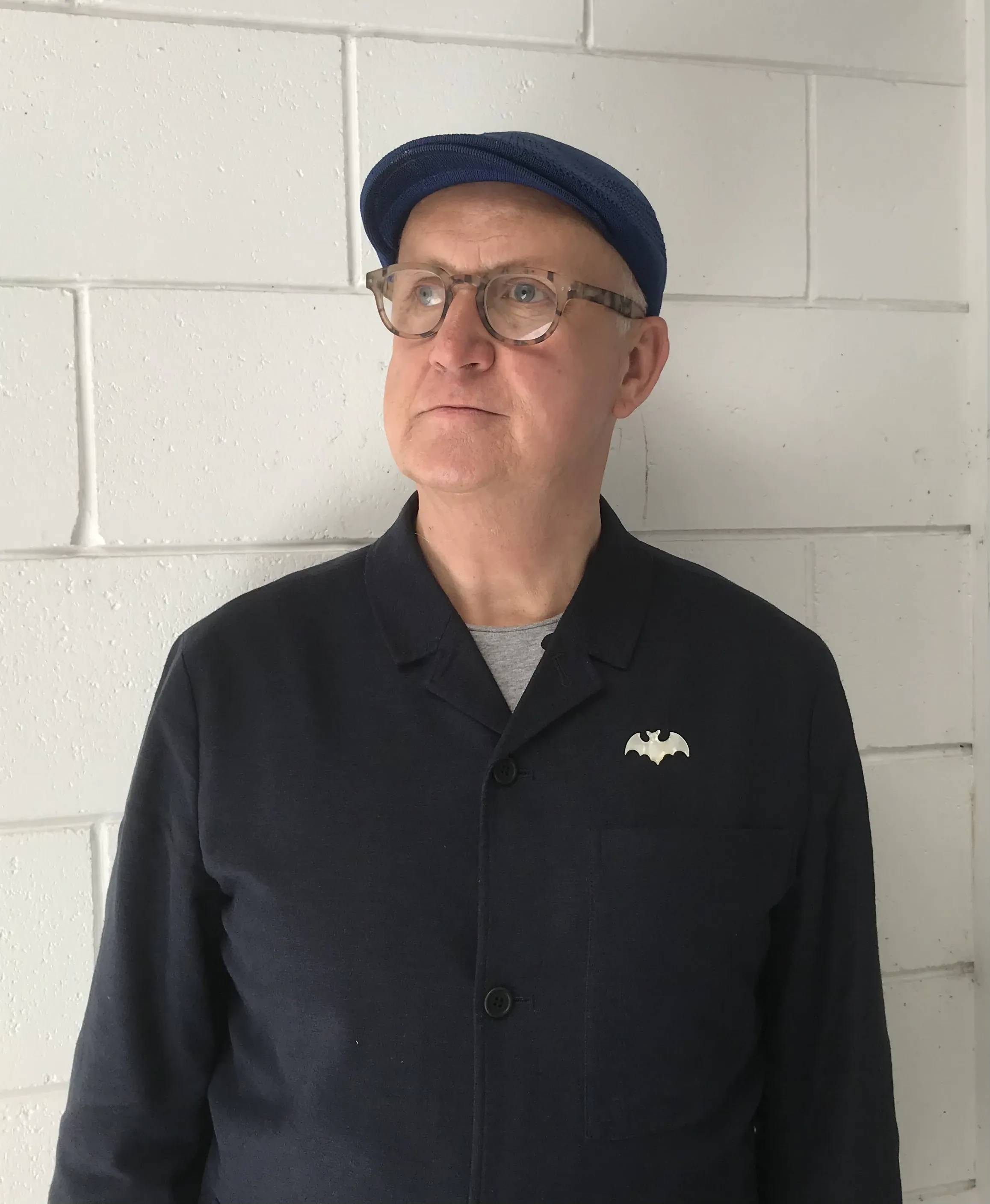
2020 has been all kinds of challenging. Surprising and enlightening by turns.
The impact on and response from the creative sector has been kaleidoscopic. COVID-19 has closed off sources of light for many. And yet, there are plenty of signs that the response to the very immediate and very human impacts of the virus have cast new light on how the sector can be sustained and what it might become.
I don’t think there are any clear patterns yet; underlying slow seismic changes will take time. The gravity-like instinct of larger organisations to ‘hunker down’ and ‘get back to normal’ will be different from the smaller companies’ and individual practitioners’ need to think on their feet and survive.
We may see the latter morph more and grow in relative importance, as the former gradually regroup.
The hope is that we collectively find (and take) some time to step back and think, so that we might generate powerful new ways of connecting (across sectors, locally, nationally, globally) and working together. The very immediate and very human challenges COVID and the climate emergency have dealt us need equally urgent and deeply connected responses.
Anne Rodda - Voyager Advisory Director
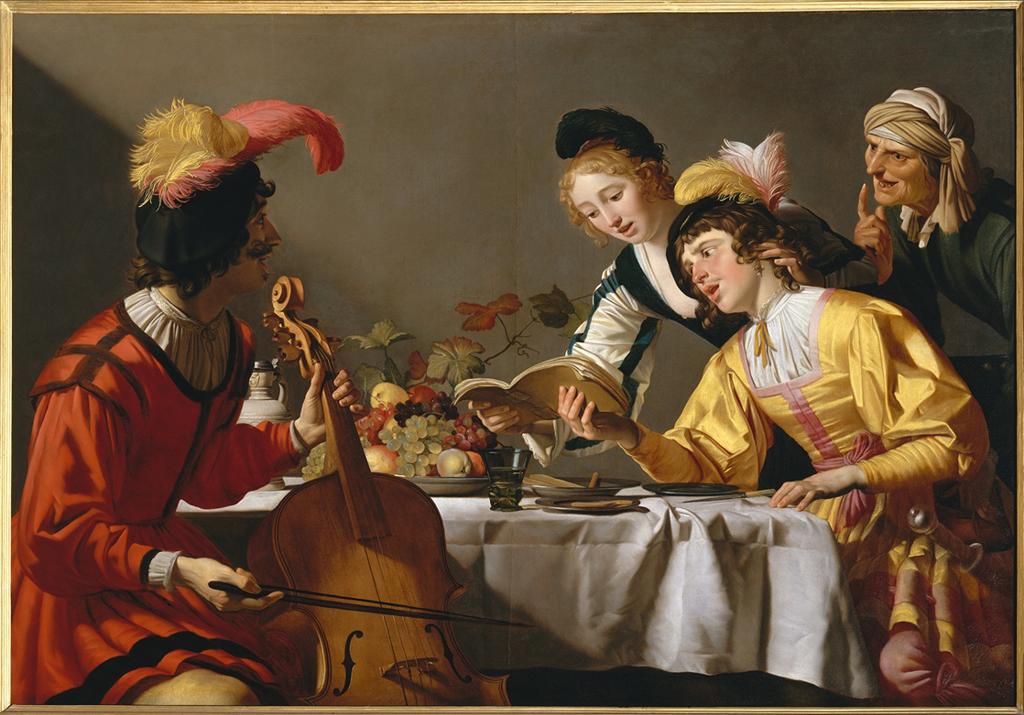
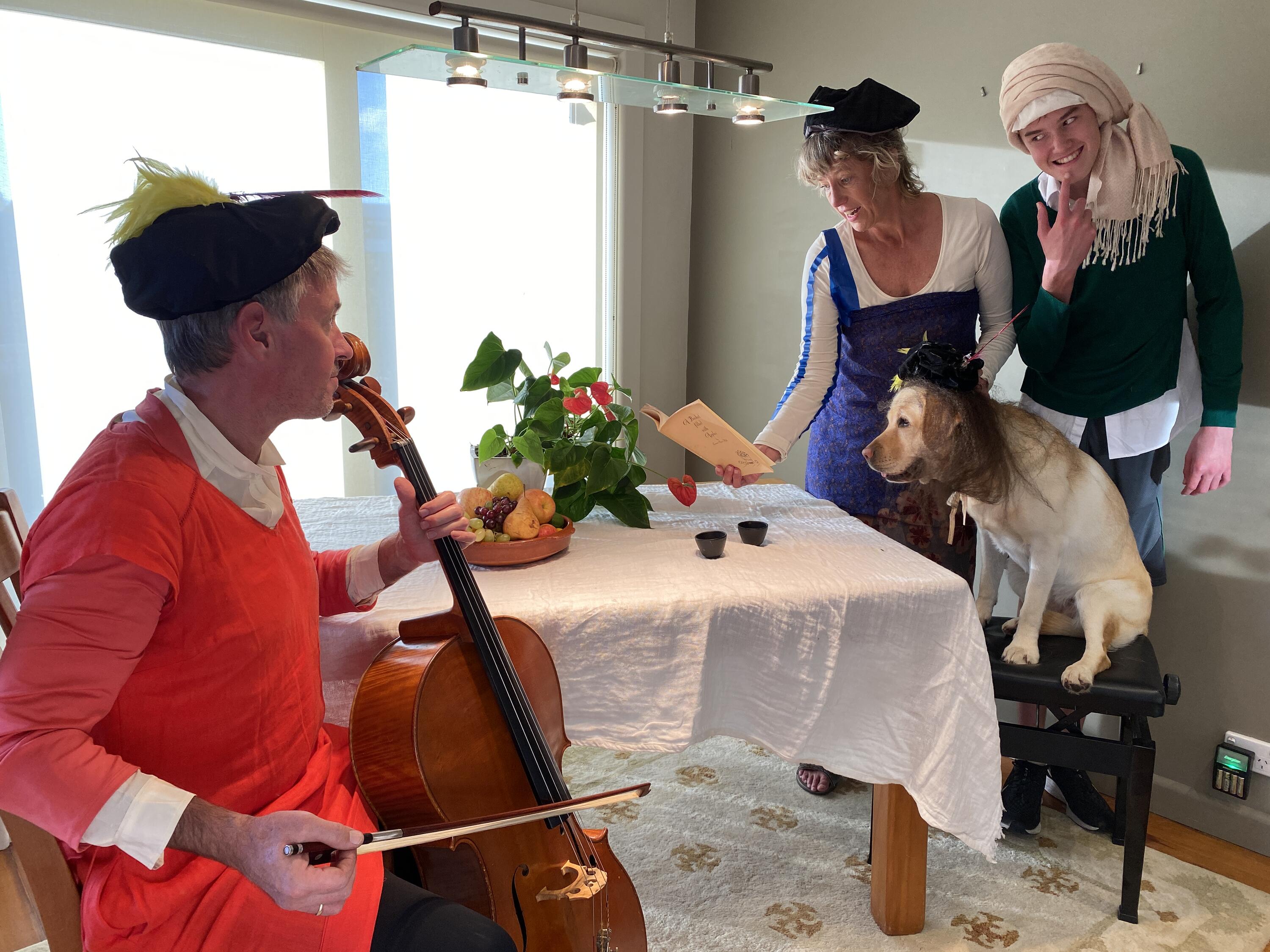
Anne Rodda and family tackling the Getty challenge during lockdown #1.
New Zealand is an oasis. Kiwis have trusted our leadership and by and large behaved ourselves. We’ve earned our freedoms and treasure our good fortune being a remote island nation. So many colleagues and loved ones are doing it rough elsewhere in the world.
As arts consumers, we’ve learned not to take live shows for granted. Buy the ticket and attend – we never know when this privilege will be taken from us again. It’s the golden age of the NZ artist, so let’s get to know ourselves more fully and ripen our cultural DNA.
As arts presenters, we must hope for the best and plan for the best (not the worst). Compromising our artistic output isn’t the way forward - being more imaginative is. We’ve already learned how to stop in our tracks and pivot (let’s ban this word for 2021!) so trust in our ability to make lemonade.
COVID has accelerated trends. What we felt niggling in our guts but didn’t have any hard data is now showing itself, front and centre, on our P&Ls and our forecasts. We’re going to lose long-standing partners but this clears the way for new ones. 2021 will be the year for the Great Reset. Embrace the opportunity.
Kirsten Matthew - writer, Mabel Maguire director, The Big Idea Trustee
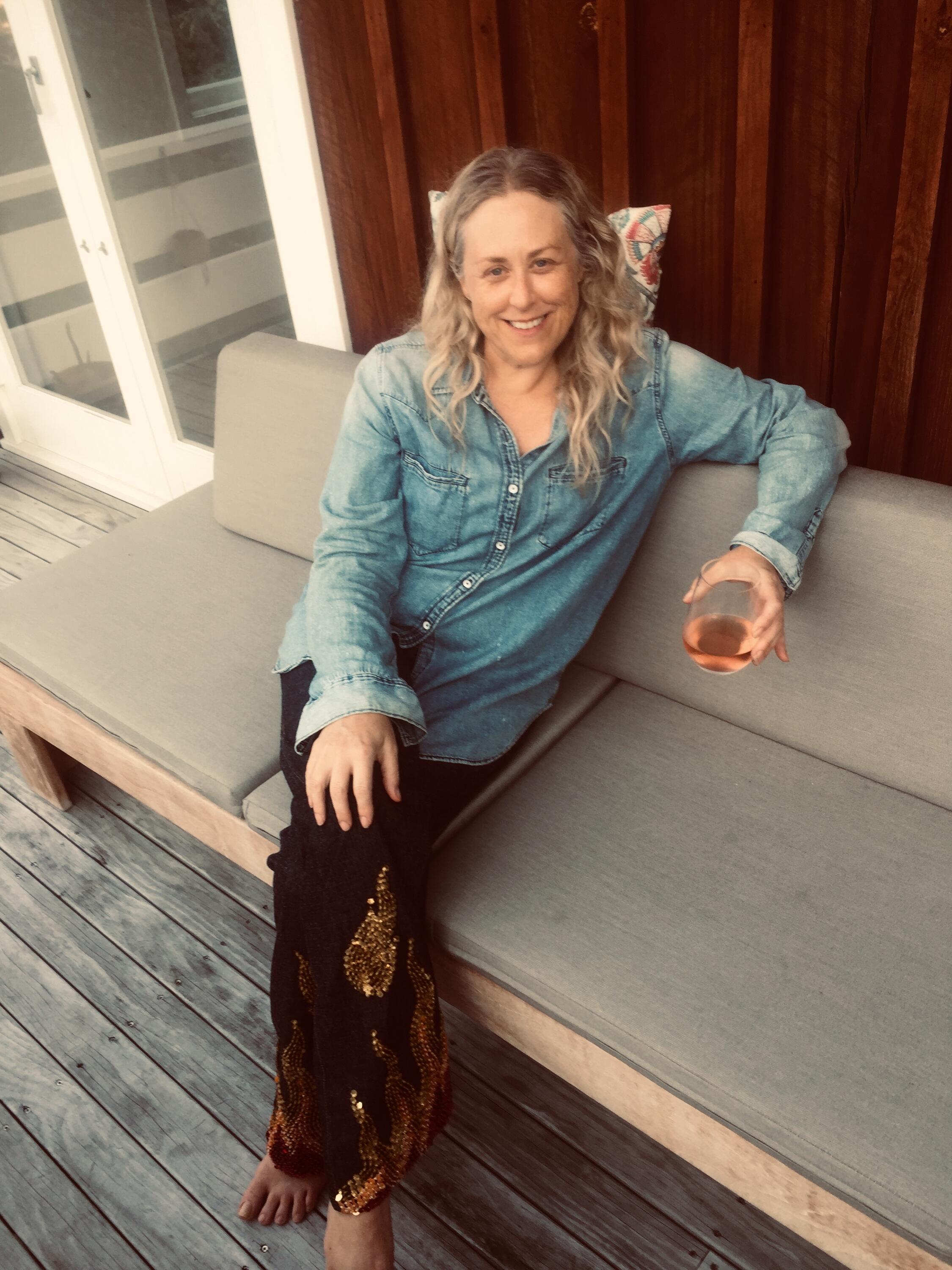
2020 has taught us:
- That people need people
- That people need art, especially in an end-of-days pandemic
- That no profession is pandemic-proof but that artists - more than any others know how to work alone, in isolation, and how to be productive in adversity
- That art needs to be experienced virtually as well as physically and emotionally
- That art can be found anywhere: on streaming platforms, Tik Tok, protest placards… and in a loaf of sourdough bread
- That when we slow down, we are forced to listen
- That we all have to do better at supporting each other
- That we all have to work harder to represent the diversity of voices in our creative community
- That nothing is ever guaranteed in life
- That every artist needs at least a couple of pairs of stay-at-home trackies
Natasha Beckman - British Council Director for Aotearoa New Zealand and the Pacific
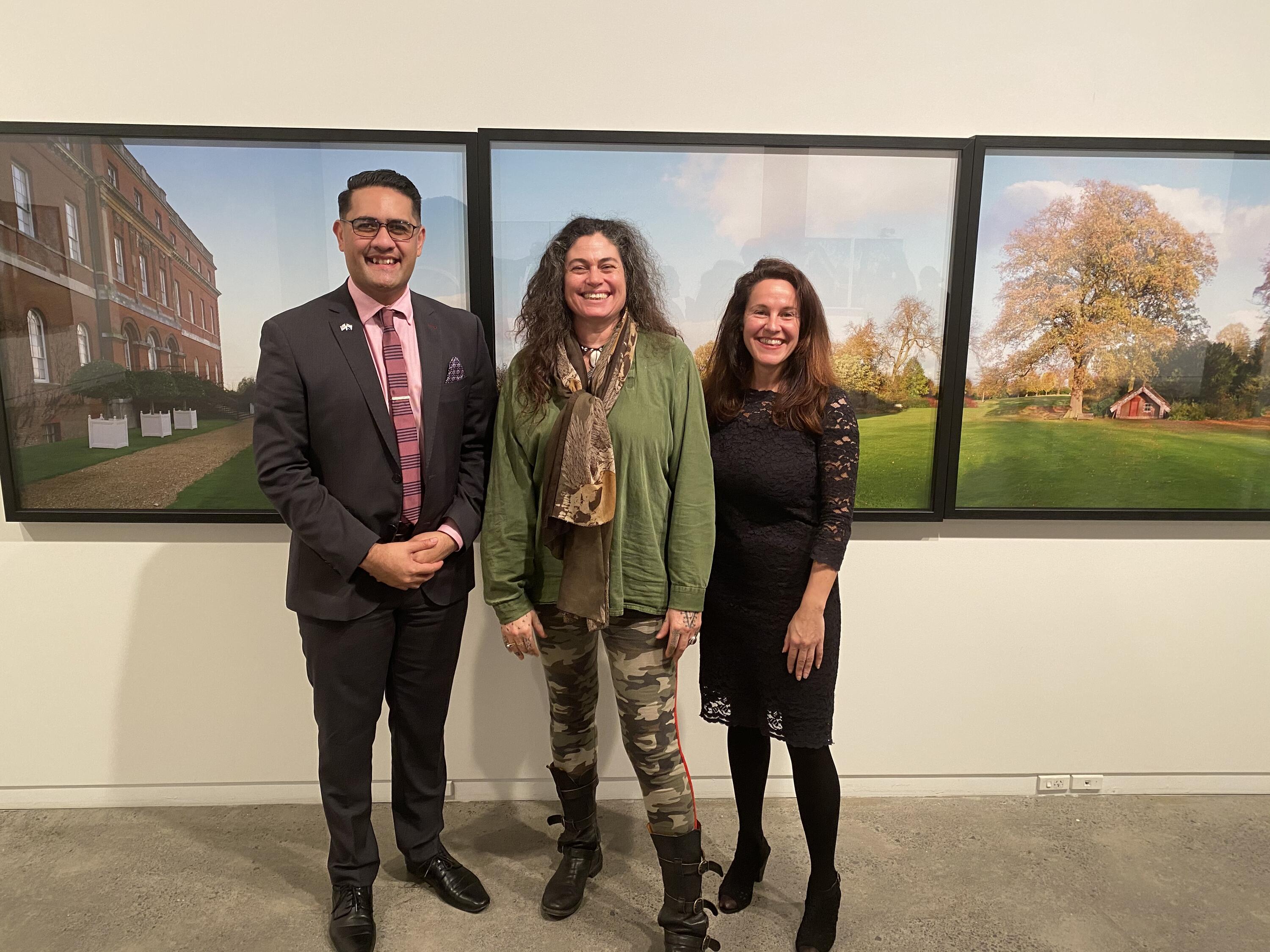
Natasha Beckman (right) with Rosanna Raymond (Artist) and Matthew Gifford (Maori Engagement Advisor, British High Commission) at Mark Adams exhibition at Two Rooms, Hinemihi – Te Hokinga – The Return.
I’ve found we need to work really innovatively to continue to foster international cultural relations in this challenging new environment and explore different ways of presenting. One result is Artspace Aotearoa currently hosting an exhibition of moving image from the British Council collection and LUX, WE ARE HERE, (on until 5 Feb 2021) curated by John Tendai Mutumbu, a NZ curator now based in the UK.
We also need to maintain connections with our creative whānau overseas, reach out to them using the virtual tools that we are so fortunate to have, and empathise with what they are going through. Many of the artists I have worked with over the past decade in the U.K. have had COVID and are still suffering from its physical effects, let alone the devastation to their artistic practices and communities.
I was talking to one recently. I began talking about relative minutiae when he stopped me in my tracks and said, “No, I meant HOW ARE YOU, have you had COVID, are your family OK?”. He himself has had COVID, which for many I know is having a long tail, with ongoing symptoms, such as exhaustion, weeks or even months later. It really puts into perspective how blessed we are in here Aotearoa.
Kate Powell - Creative, The Big Idea writer
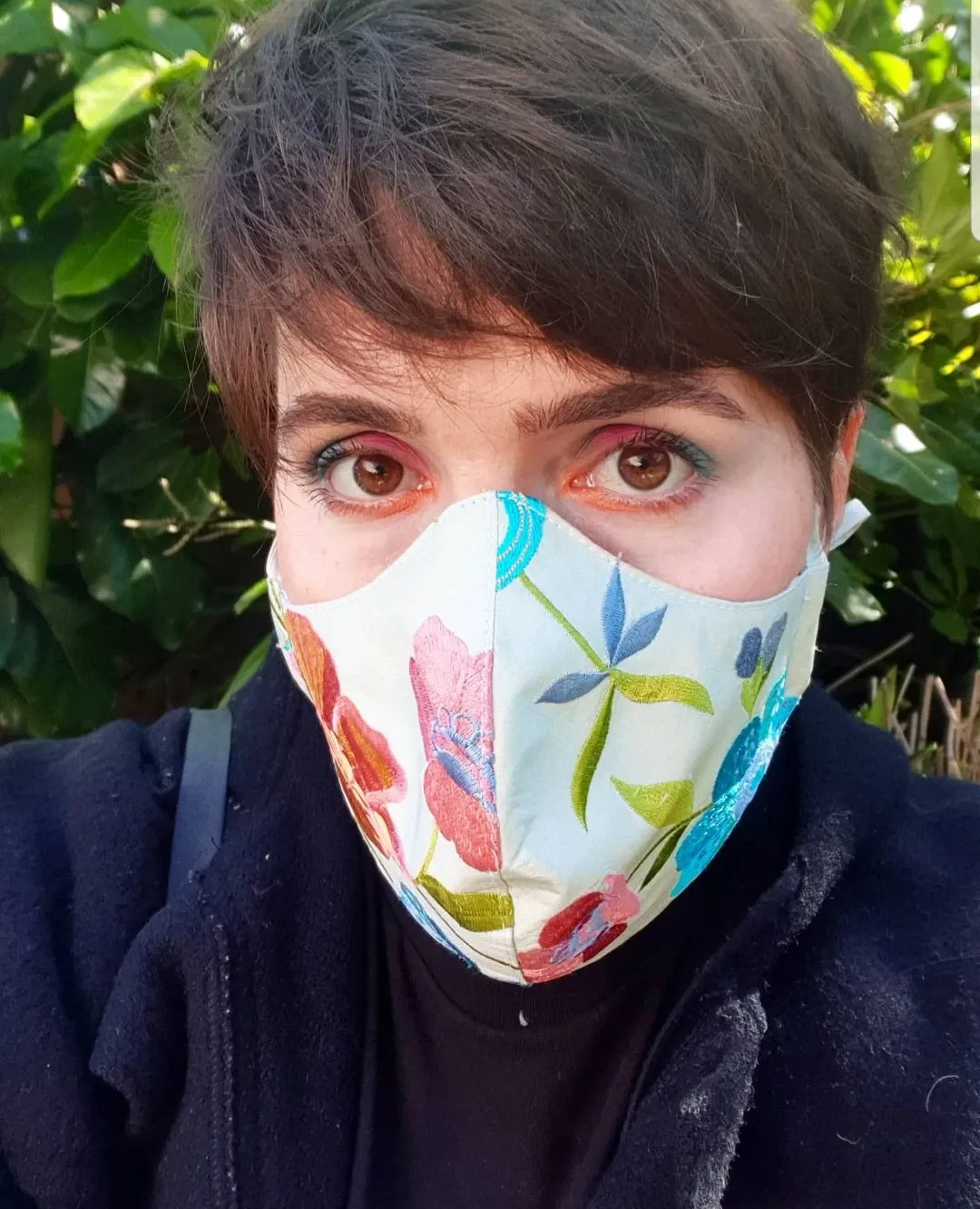
It has taken a pandemic for us to pause and really look at what is broken or no longer beneficial within the arts with a critical eye.
2020 has taught the sector that simply wanting and discussing change is not enough. Even the biggest boost to the budget in a generation is not enough.
2020 has taught the sector that to make real change takes more than the occasional uncomfortable conversation. It takes the sustained discomfort that only comes with making regular, incremental but meaningful action.
True change within the arts sector requires a coherent vision that sees a considerable investment in all levels and facets of our artistic ecology to create a sector that reflects us and our diversity. Within this considered restructure, the changes made must be sustainable rather than come and go with the changing whims of governments or funding bodies.
Because anything else is lip service.
2020 has reiterated a lot of long-held truths -good and bad- for the sector. It has highlighted our individual and collective resilience while also making it abundantly clear that to go back to the status quo or ‘normalcy’ would be the waste of a remarkable opportunity borne from remarkable difficulty.
Simon Adlam - international museum executive
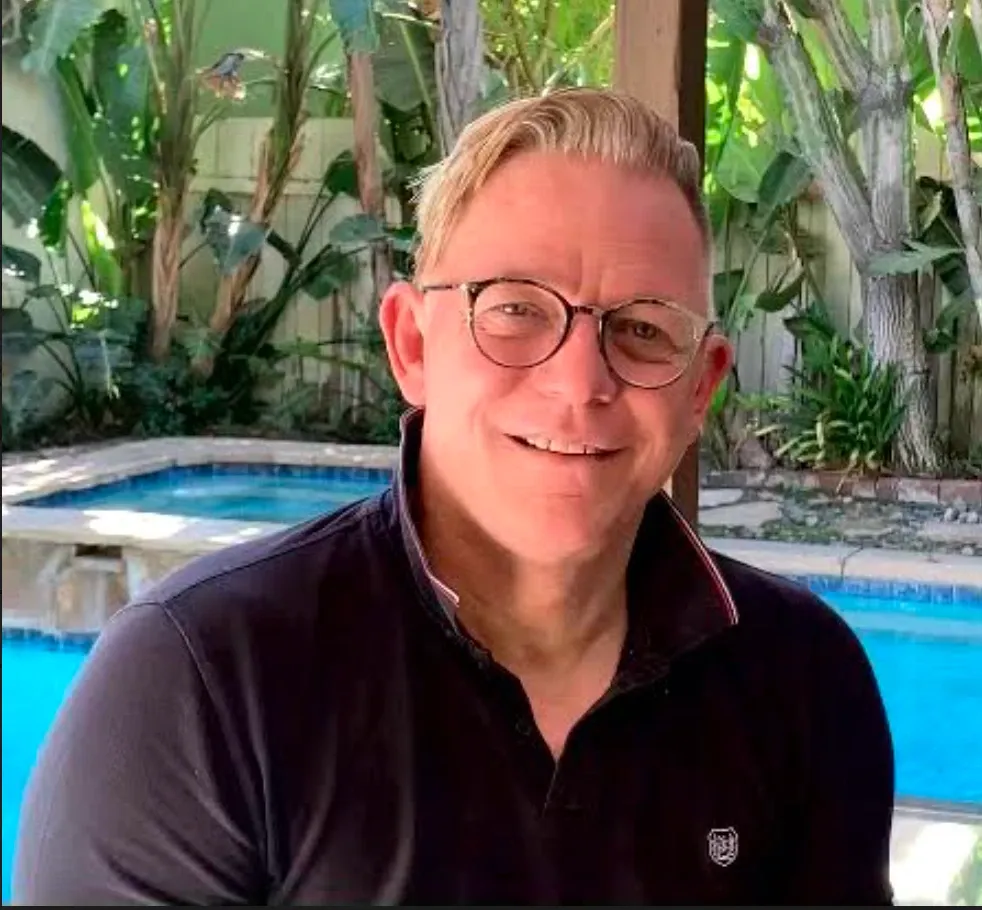
Our creative sector really stepped up in 2020. They pushed inclusion to the front of the conversation and that should be celebrated.
COVID-19 forced us into survival mode and at a molecular level, our Darwinian instincts presented us with an ultimatum, adapt or die! We, the creative community, chose adaptation and helped forged a new path forward.
We listened to new voices, asked the right questions hoping for right answers. We saw isolation as a barrier to cooperation. We made new connections and suddenly strangers became friends and allies.
The challenges from this past year provide us with new opportunities in 2021. The pandemic urged us to stop coasting along and to strive for something new, something better for ourselves and future generations.
We’ve made good progress but there’s still much to do.
The creative sector must be vigilant in combating systemic racism in our educational and cultural worlds as this problem will continue to stall progress more than any virus can. Kia kaha.
Dina Jezdic - creative, The Big Idea writer
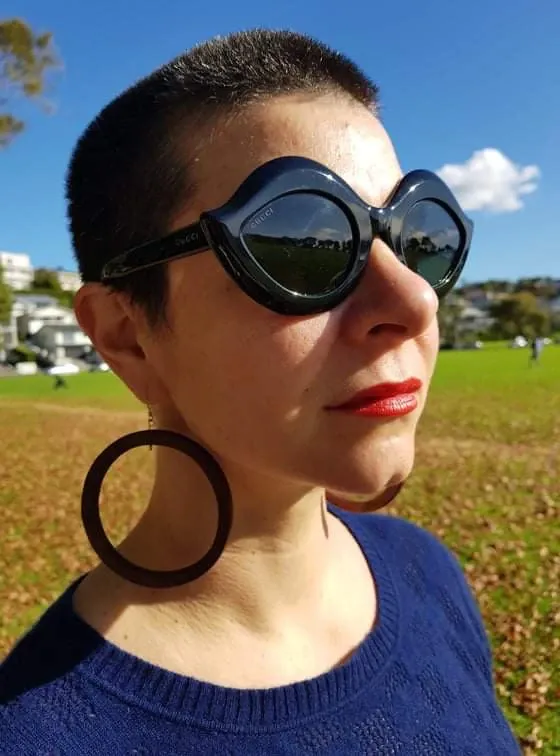
2020 is the year where we learned that ‘showing up’ is really hard, and that operating from the basis of hope is a really useful tool to envision our collective future.
The world is pivoting hard right now and so is the creative community. Much of what was planned was deferred due to the global pandemic, so many things didn’t happen, but a great many things did change and shift.
We have witnessed and experienced what it’s like to be so happy and exhausted, so hopeful and so unsure, so brave and so afraid, visionary and withdrawn, so present and so distant all at the same time.
This year was all about testing unique creative artistic practices and using our storytelling to generate conversations between perspectives and concepts by explaining to each other who we are and where we’d like to go.
Annette Morehu - playwright, The Big Idea writer
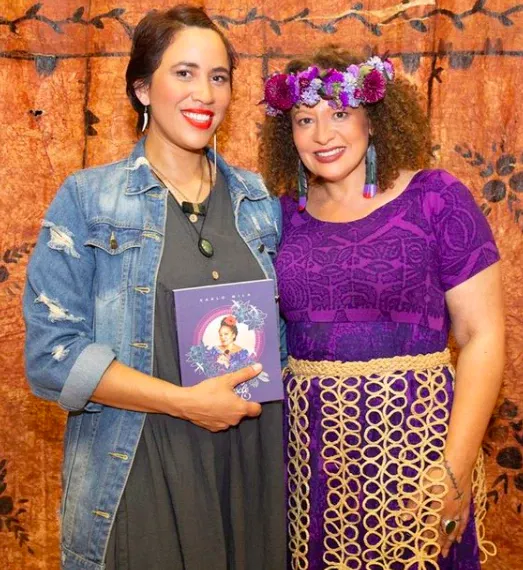
Annette Morehu (left) and Dr. Karlo Mila at The Goddess Muscle launch in October. Photo: Colleen Maria Lenihan.
What 2020 showed me is that when the creatives of New Zealand have our artforms, our livelihoods, and for a lot of us our only reason for getting out of bed in the morning taken away overnight… We form groups.
I have never in my life been invited (and to my surprise accepted the invitation) to be a part of so many groups as I have in the past nine months; all of them created to connect and unite different factions of local, national, and international creative communities in the midst of a global pandemic; each with a fancy acronym for a name.
One of the reasons I decided to become a writer was because I felt compelled to write stories featuring heroic brown gals to insert into the global narrative; and another reason is that it suits me because (as an undiagnosed hermit) I can work mostly from home and avoid having to interact with other actual humans. But this year through enforced separation, I’ve been confronted by the realisation that connection amongst like-minded creative communities is vital for all of our survival.
Also, the rise of the Zui in 2020 has definitely had its pros and cons...
Paula Browning - Copyright Licensing NZ Chief Executive

One thing the Team of Five Million learned more than ever during 2020 is just how much we need creativity for our wellbeing. Creativity is comforting and uplifting, especially when things are tough.
Another issue that we saw reinforced in 2020 was the problem of having an economy that’s too reliant on just a handful of sectors. I hope we’ll take a realisation into 2021 that we need to diversify how we earn and that the creative sector, with its digital products and services and international reputation for incredible work, can be an even bigger contributor with the right sort of government acknowledgement and support.
Dominic Hoey - Poet, The Big Idea writer

Photo: Laura Vincent.
what has 2020 taught us as a creative community?
we’re the duct tape
holding the cardboard
over the broken window
Annabel Hawkins - creative, writer, poet, strategist
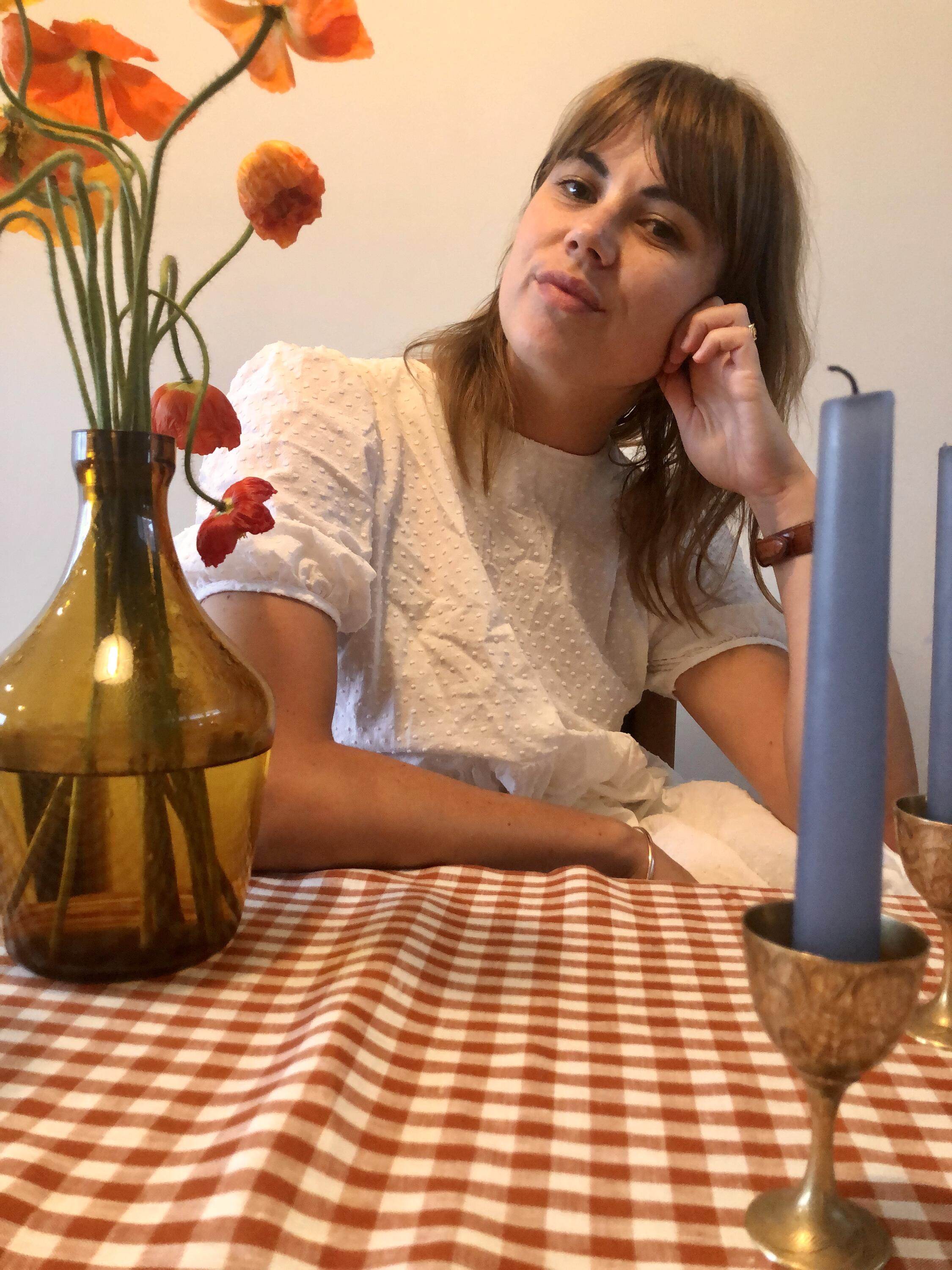
If not now, then when?
Life is fragile. Power can't be trusted.
We are only as strong as our collectives. And that's where the best source of energy and creative validation can come from if we both seek it and let it.
The best advice I've been given, and something I think of often is - Keep making things, keep finishing things.
Graham Reid - Elsewhere editor, The Big Idea Writer
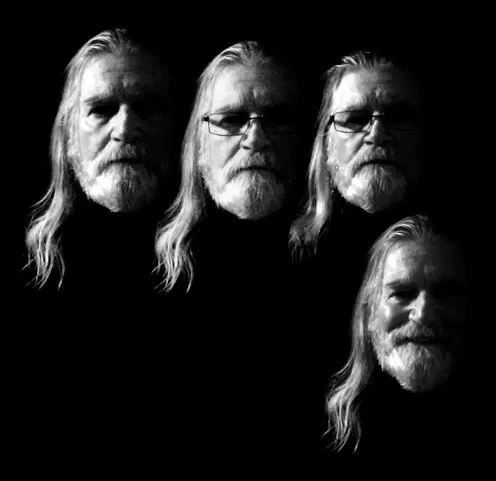
After what was a serious year, let’s get light-hearted and say maybe what we learned was, to quote that incredibly annoying song, “it’s a small world after all”.
Technology allowed creative people to continue working through Zoom, image and file sharing, and all that connective tissue which binds us together.
For some of the time many must have felt alone, yet creative people learned the value of staying in touch with their communities, and the value of sharing ideas, fears, opportunities and assistance.
And suddenly that most precious of commodities, time, became available. The distractions of life outside the creative process fell away. There was more space to focus on the work, whatever that might be.
We also knew everyone was doing it tough, some tougher than others when deprived of their livelihood, in unfortunate circumstances, lost how they were used to defining themselves and felt in failing spirits.
Maybe we learned empathy more than anything?
If that happened, along with reconsidering our priorities, then perhaps that was what individuals within the creative whole learned from 2020?
After all, it’s a small world, we share it . . . and these days can share more easily within it.
And if you’re reading this, then you survived.
That alone is a reason to be cheerful.
